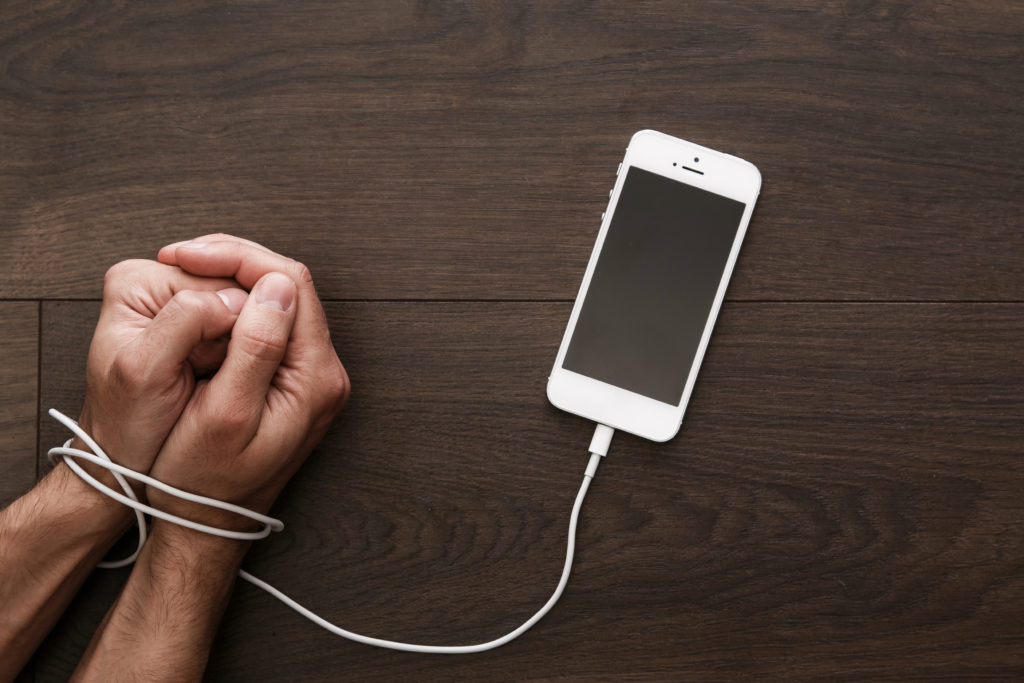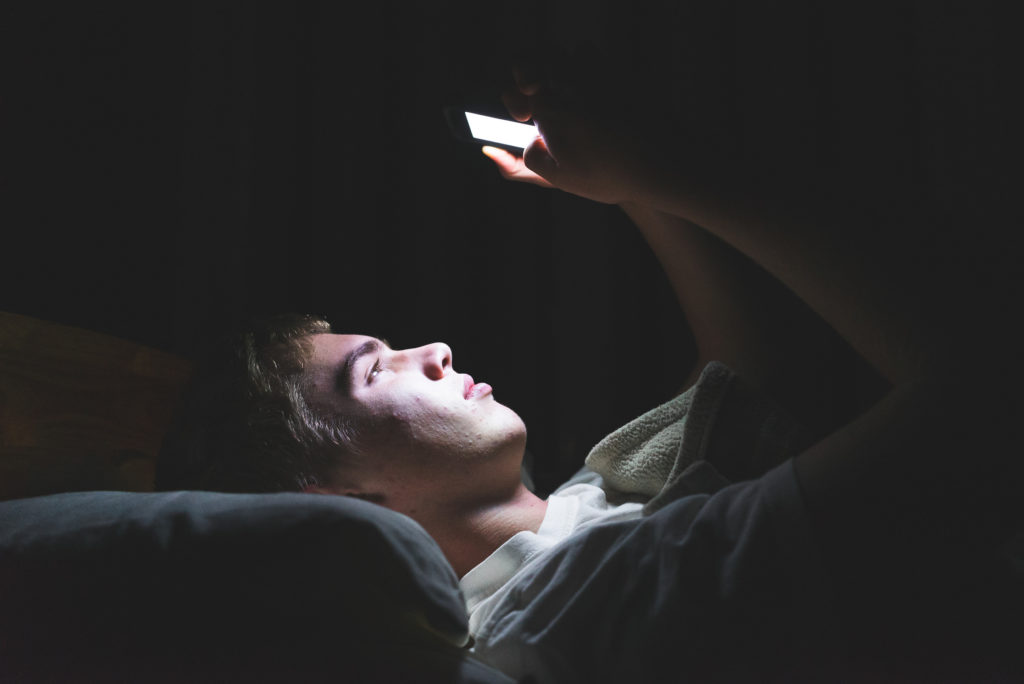
When is the last time that you left your house without taking your mobile phone? Can you remember the last walk you took without checking your social media feed? You have a device that allows you to work, watch shows, conduct financial transactions, keep in touch with out-of-town family, shop, and broadcast your thoughts instantaneously from nearly anywhere, and it fits in your pocket. Mobile phones have obviously revolutionized the world. You just don’t have to physically go to as many places anymore to get things done. I can’t remember the last time I actually had to go to the bank to complete a check deposit. I can do that from my kitchen.
Residents of developing countries have also seen benefits from mobile phones becoming ubiquitous. Even basic phones that only have call and text features and no internet access can operate as mobile money transfer devices. This means you don’t have to carry cash or even a credit card to conduct business anymore, leading to more economic development around the world.
There are clearly a lot of positives to having access to mobile phones. Yet, I’m old enough to remember a time when I had to leave the house to find my friends. In fact, whole generations of people lived their lives without smartphone apps or social media and the world kept on spinning. But, as we all know, for every yin there’s a yang.
The problem with phones is that nowadays, they can do so many things that as long as the battery holds a charge, a person could easily spend their entire day looking at a screen without realizing just how many hours have passed with them doing so. Cell phone addiction is now a real thing. Smart phones have been around for a little over a decade and researchers have been studying the impact they have been having on us for about as many years. One study published back in January of 2015 posed that some people feel so connected to their phones that when they find themselves in a situation when they can’t look at their screens, like a work meeting, they get anxiety due to phone separation. This leads to people spending too much time looking at their phones, which creates a vast assortment of unexpected consequences.
Time is a resource that is definitely not renewable. One of the consequences of evolutionary biology is that people need time to rest. We’ve all felt tired and we know how it feels when we don’t get enough sleep. Apart from a lack of sleep, too much time on your smartphone can lead to additional adverse health effects. But you don’t need a study to figure out that reading your news feed at night instead of going to sleep can reduce your concentration and your ability to function properly the next day.
For most of Americans, one task we can’t avoid in the morning is driving somewhere. Whether it’s to work, school or otherwise, over 80% of Adults in the United States would say they get behind the wheel frequently, and a lot fewer than that say they enjoy it. Hopefully it isn’t because they’re too tired to drive.
When you’re tired – you’re groggy and irritable. Add the stress of rush hour traffic to the mix and you’ve got a recipe for disaster. A study that looked at the effects of sleep deprivation on people working in the transportation industry found that not sleeping enough produces motor skill performance equivalent to what happens when a person consumes enough alcohol to exceed legal intoxicated driving limits.
Fatigued driving can be as bad as drunk driving. Yet, how often have you heard about someone being pulled over for driving while tired? This is a problem that requires attention from all aspects of society – government and private. Putting our phones away at night is a good first step, but that is easier said than done. With smartphones being so addictive, it’s tough to figure out how to motivate ourselves to use them less.
I’ve come up with a few tricks that have worked for me. Of course, everybody’s different and tactics that help one person find success may not be as effective for someone else. Therefore, you may go through some trial and error before you find what’s best for you. Nevertheless, here’s what I’ve done:
- Put the phone away earlier – Supposing I want to wake up at 6 a.m. the next day. In order to get a full 8 hours of sleep, I probably have to go to bed by around 9:30. Before I allow myself to succumb to the temptation of scrolling through posts that can easily take me down a rabbit hole that will make an hour disappear before I know it, I put the phone away much sooner. In fact, I put the phone in another room altogether at least an hour before I plan to go to bed. That way my mind is already easing into the mode of not reaching in my pocket every few minutes to check the sports scores.
- Track your screen time – If you can think of it, there’s an app for that. Get yourself a screen time tracker. This feature is already built into the iPhone and there’s probably something similar on other devices. Knowing how much time you actually spend looking at your phone can help you figure out ways to bring that number down. Also, you can set limits. You can set these applications to warn you when you’ve spent more time on social media than you would like. Monitor yourself at first to see what your actual habits are, and then modify your activity based on that.
- Take walks – Or, find a way to get more active if you can. I know that exercise helps me get to sleep quicker. When I’ve had a long day at work, exercise is often the last thing I want to do. But I know that once I get started, I will feel better. Once my workout is over, my mind is calmer, and I know it will be easier for me to turn off my thoughts and drift off to sleep. If I just can’t motivate myself to do a full gym routine, I can take a walk if the weather is nice. Combining fresh air with increased blood circulation from walking usually makes me feel better and, if it’s close enough to bedtime, I’m ready to fall asleep as soon as I get back from my evening constitutional.
- Turn the notifications off – You may have heard social media or smartphones referred to as slot machines. This means the way phone applications are structured is similar to a slot machine in that it is designed to make you want to stay with it for a long time and keep coming back for more. The notifications on your social media apps trigger a dopamine response so you feel good when your phone tells you someone liked or commented on your posts. You can limit the urge to keep checking your post for new reactions by turning off push notifications and checking to see what happened on Facebook while you were away rather than letting it tell you every single time somebody presses like on a picture of that great sandwich you made.
- Read a book – I mean an actual book and not an e-book or an audio book. Reading before bed is extremely calming for me. I know if I grab a novel and read for a few minutes when I lie down at night, I will be ready to doze off before I know it. Now, it’s true that some books are page turners that make you want to keep reading, but if I make a habit of opening a book before bedtime on a regular basis, my body will start getting used to falling asleep at the same time. That’s when I get my optimum rest.
I hope that some or all of these tactics are helpful. Of course, you may find that you need to do your own thing to get results. There is no going back, smartphones or some version of them are here to stay and when used responsibly they are an excellent tool for promoting a business, finding work, or just keeping in touch with friends and family. But, like anything, overuse can be a problem. Therefore, many of us may want to cut down so that we can get some more rest and take care to drive safe.


